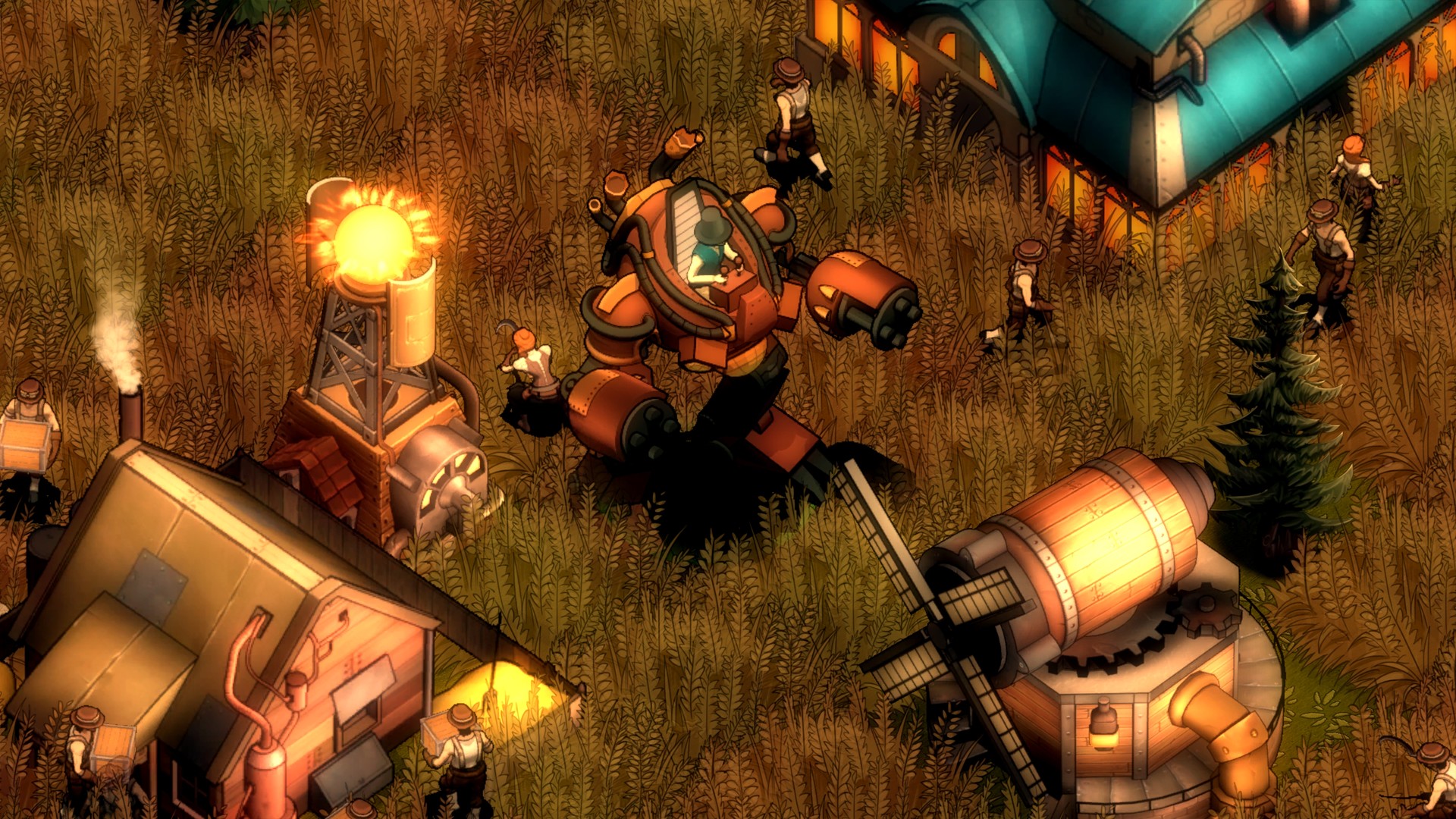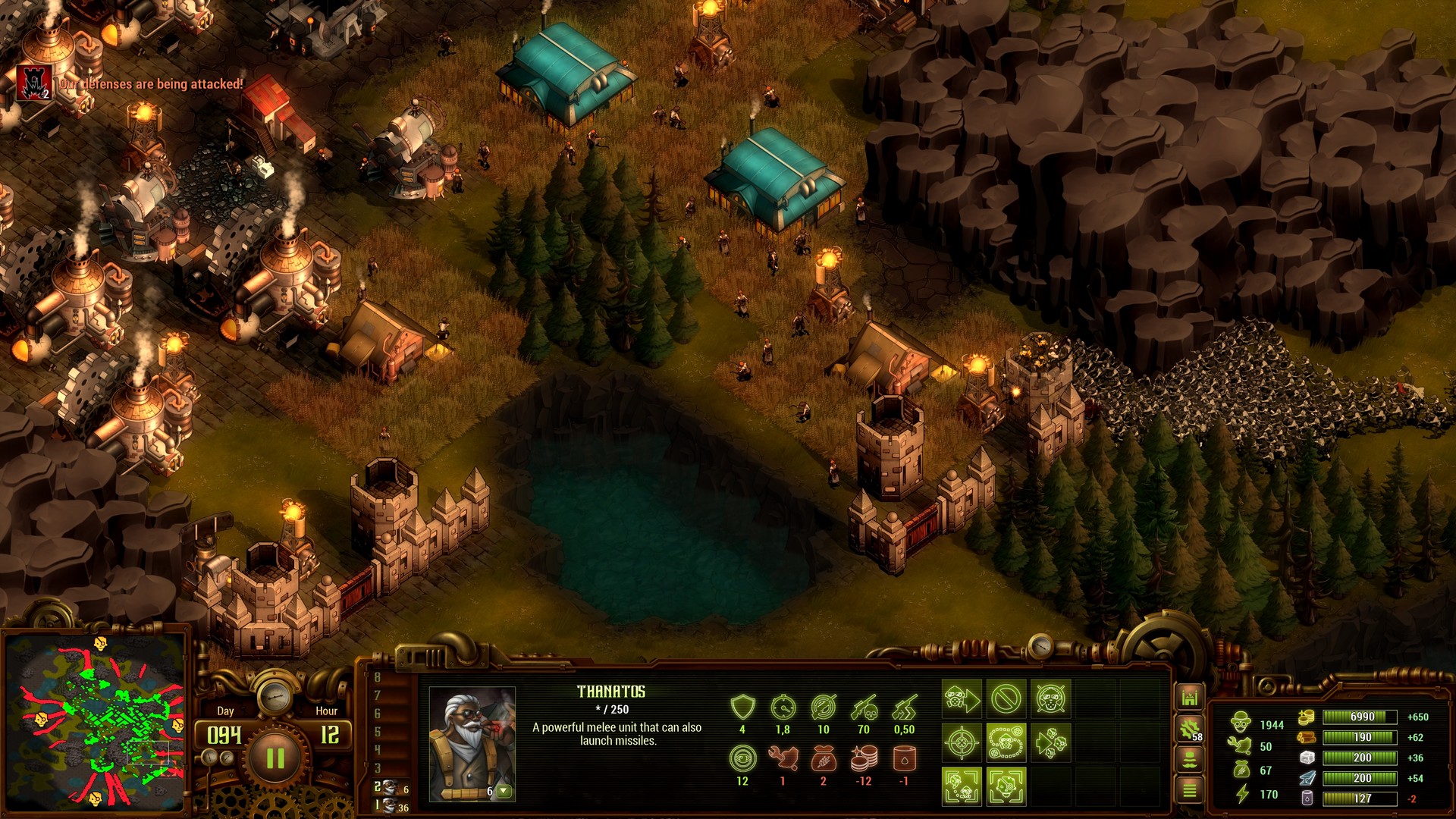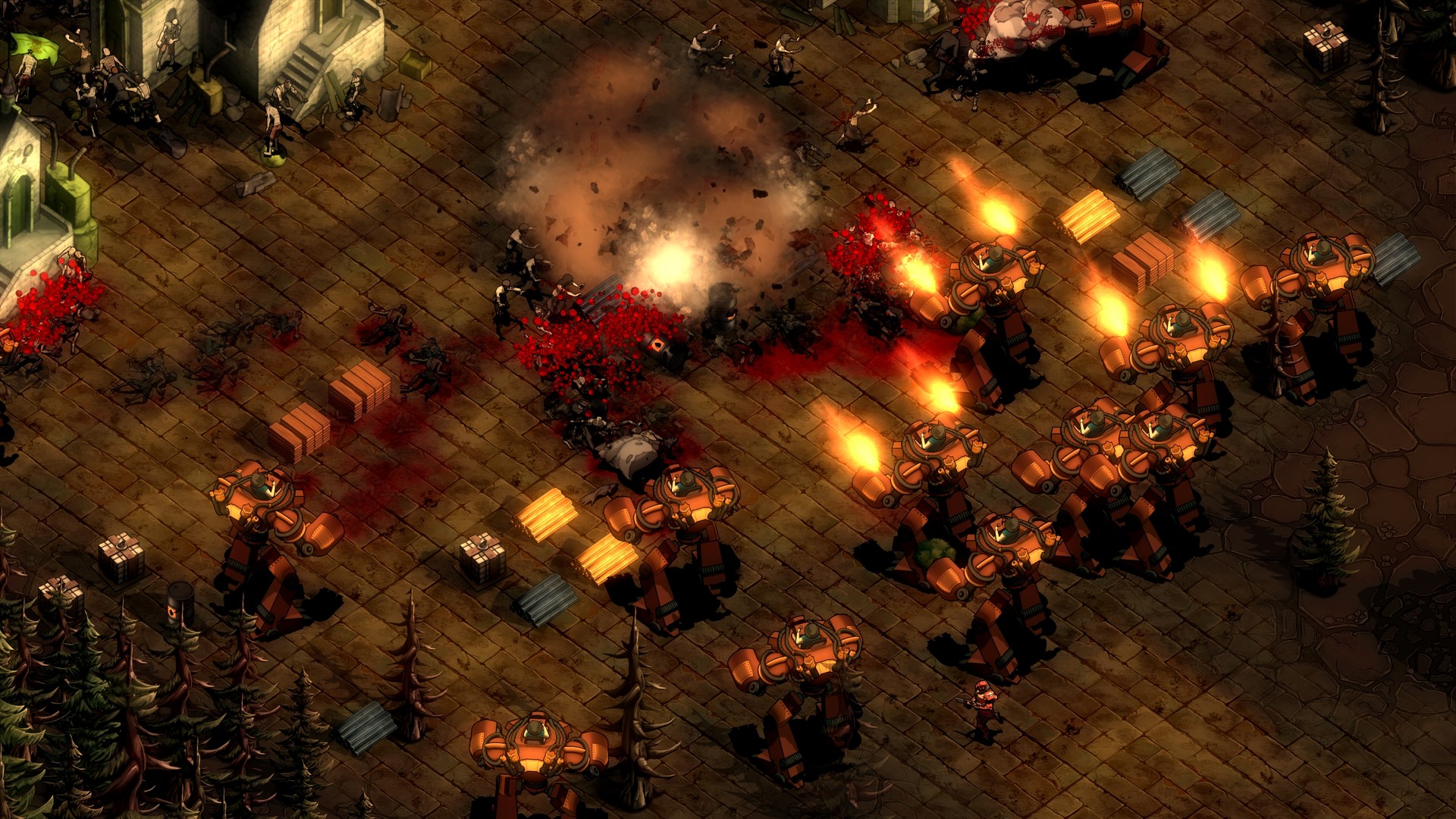
It came as a surprise to me when I learned that Numantian Games were working on a rather peculiar RTS, especially since their previous game was a turn-based RPG. I’m not doubting their skills here, I just find it to be a pretty interesting change. With that said, They Are Billions was met with high praise when players first got their hands on it earlier in its development. Even though the main idea behind it remains the same, it was a very different game than it is today.
After launching on Steam’s Early Access program back in December of 2017 with only a Survival Mode, the game finally released its 1.0 version last month, and you can now experience the whole package. The main thing about this release was the launch of the Campaign Mode, which was said to tell the tale of how Humanity would reconquer the lands back from the infected hordes, as you led the charge through a series of unique missions that would greatly differ from the already extremely compelling gameplay loop that could be found in the Survival Mode.
But, before we get to that, in case the person reading this is not completely up to speed on what They Are Billions is all about, please, allow me to introduce it to you. They Are Billions is a Real-Time Strategy set in a post-apocalyptic world where most of Humanity has perished to a mysterious pathogen that began infecting the world’s megacities and turning people into all sorts of ravenous monsters. So, what sets this game apart from other strategy games? Well, its main selling point is that you get to face off overwhelming hordes of infected as they storm your colony, and you get to witness your troops and defenses in a never-ending carnage.
Despite its unique premise, for the most part, They Are Billions still feels and plays like a traditional RTS. There are resources to be gathered, like iron, stone, food, wood, and energy, and you have to grow your colony throughout the maps by expanding your energy grid so that you can build inside its radius. Thanks to this system, you’re free to play at your own pace for most of the time. You can either build a series of energy towers to expand your reach quickly before the next big wave of infected hits you, or you can progress slowly as you hunker down by building your defenses.

In terms of unit types, there are just enough to make the gameplay flow feel varied and interesting, but don’t just expect too many of them. There are your basic archers, short-range soldiers, as well as snipers and mechanized units that do provide some extra flavor. With that being said, defensive structures are most often than not one of your greatest offensive capabilities. From the Ballista Tower to the tesla-like Shock Tower, there are a few but compelling structures that make this game feel quite unique when compared to other RTS. They Are Billions also offers both a Campaign and a Survival Mode, as well as weekly challenges and a map editor (including Steam Workshop support). Personally, having waited so long for the campaign, and having followed its development closely, I must say that it was quite a letdown.
Before you dive into it, I’d suggest you think of the campaign more like a series of challenges instead of a campaign like you’re used to seeing in games like Command & Conquer, Age of Empires, or StarCraft. There’s barely any story exposition here. If you’re hoping for a campaign with great characters, an interesting plot, something to keep you hooked and playing, then you should prepare yourself to be disappointed. There is no character development, no meaningful events, nothing really to look forward to. Nonetheless, hope is not lost, as They Are Billions is all about the gameplay, and I think this manages to make up for it.
Still, it needs to be mentioned that the campaign problems are not only related to the narrative, but also the mission objectives and the way missions are structured. There is one thing that really drags the campaign missions down, and that is the fact that you have to amass a certain amount of colonists on each mission. In practice, this means that a lot of your time will be spent building houses so that you just have enough colonists to complete the mission, even if you might not need them for troops or to work in your buildings. This highly repetitive objective can become even more cumbersome if you happen to fail a level. Sure, it’s your fault that you failed, but having to start over from scratch can be quite frustrating. This is especially true because some missions can take up to 3 hours to complete. Also, there is only one save slot, so save scumming is out of the picture. Personally, I think this should be up to the players to decide how they want to play, but I can respect the developers’ decision and dedication towards a more hardcore audience.
The inclusion of a tech tree that spans across the entire campaign is also something that boggles my mind. While in Survival Mode you have everything unlocked, in the Campaign you have to spend research points, which you earn by completing missions, to unlock upgrades, units, and buildings. While experienced players will surely have a good idea about what to research first and what to skip entirely, I’m pretty sure that some people might find themselves in tricky situations by not researching the proper technologies.

However, while the issue about spamming houses to get colonists is present in most campaign missions, there are also two other types of missions, Hero Missions, and Swarm Missions. In Hero Missions you only get to control one out of two characters, which you get to pick at the start of the campaign. While each of them has different attack patterns, they don’t help in making these hero missions any less of a slog. Quite honestly, these might just be the worst thing about the game. These are extremely slow-paced because you’re only controlling one character that is exploring a huge map, and on top of that, you’re literally playing a hidden object game in these missions, as you’re looking for specific props that you can interact with in order to get research and empire points.
Then there are Swarm Missions, which are only found blocking access to main missions. In these missions, you have to defend an outpost by defeating all the incoming infected. This is not done by building up a base, like in the other missions or survival mode. Instead, you use your empire points, which you gain as you progress through the campaign, to buy units and defensive structures and build up your defenses for the impending onslaught.
Overall, that’s pretty much what the Campaign entails. Despite everything, I don’t think that the campaign is where the game really shines. Instead, it is in the survival mode, where I had the most fun. Here you have everything unlocked since there’s no technology tree like in the campaign, so you’re not constrained to play a certain way in each match. Furthermore, there’s a whole lot more replayability in survival, not only because maps are randomly generated, but also because there are different types of maps that you can unlock as you beat each map type. All you have to do in the survival mode is to survive for a specific amount of days. This can be tuned to provide a tougher, or easier challenge, either by increasing the infected population or the game duration in days. I honestly think that you can get your money’s worth out of this mode alone.
Apart from the issues that I’ve already mentioned, there are a few others that should be noted. For starters, the game desperately needs a speed-up function, as there are a lot of downtimes as you’re waiting for the train to deliver more colonists, or you’re waiting for the next wave of infected to hit your colony. On the other hand, on occasion, the game will randomly freeze for a few seconds, or even entirely, forcing you to kill the game through the task manager, which is particularly frustrating if it was a while since your last auto-save. Finally, I’ve also noticed some pathfinding issues, with units having trouble going around unit formations or getting stuck on terrain.
At the end of the day, if you’re looking for an RTS with an involving narrative, sadly, you won’t find that here. However, if you’re looking for a highly replayable and extremely challenging experience, this might just be the thing missing in your life. Killing endless waves of zombies has never felt so satisfying, even despite all of the game’s shortcomings. Also, if you’ve read elsewhere that the game is extremely hard, that is correct, but you can customize the difficulty of each mission to match your skill, so that shouldn’t be a reason to keep yourself from playing this game. Although not perfect, They Are Billions is a solid RTS that brings a much needed fresh take on the genre.
REVIEW CODE: A complimentary PC code was provided to Bonus Stage for this review. Please send all review code enquiries to press@4gn.co.uk.
Subscribe to our mailing list
Get the latest game reviews, news, features, and more straight to your inbox
Thank you for subscribing to Bonus Stage.
Something went wrong.
They Are Billions Review
-
Gameplay - 7/10
7/10
-
Graphics - 7/10
7/10
-
Sound - 7/10
7/10
-
Replay Value - 7/10
7/10
User Review
( votes)Overall
Summary
Although not perfect, They Are Billions is a solid RTS that brings a fresh take on the genre.






